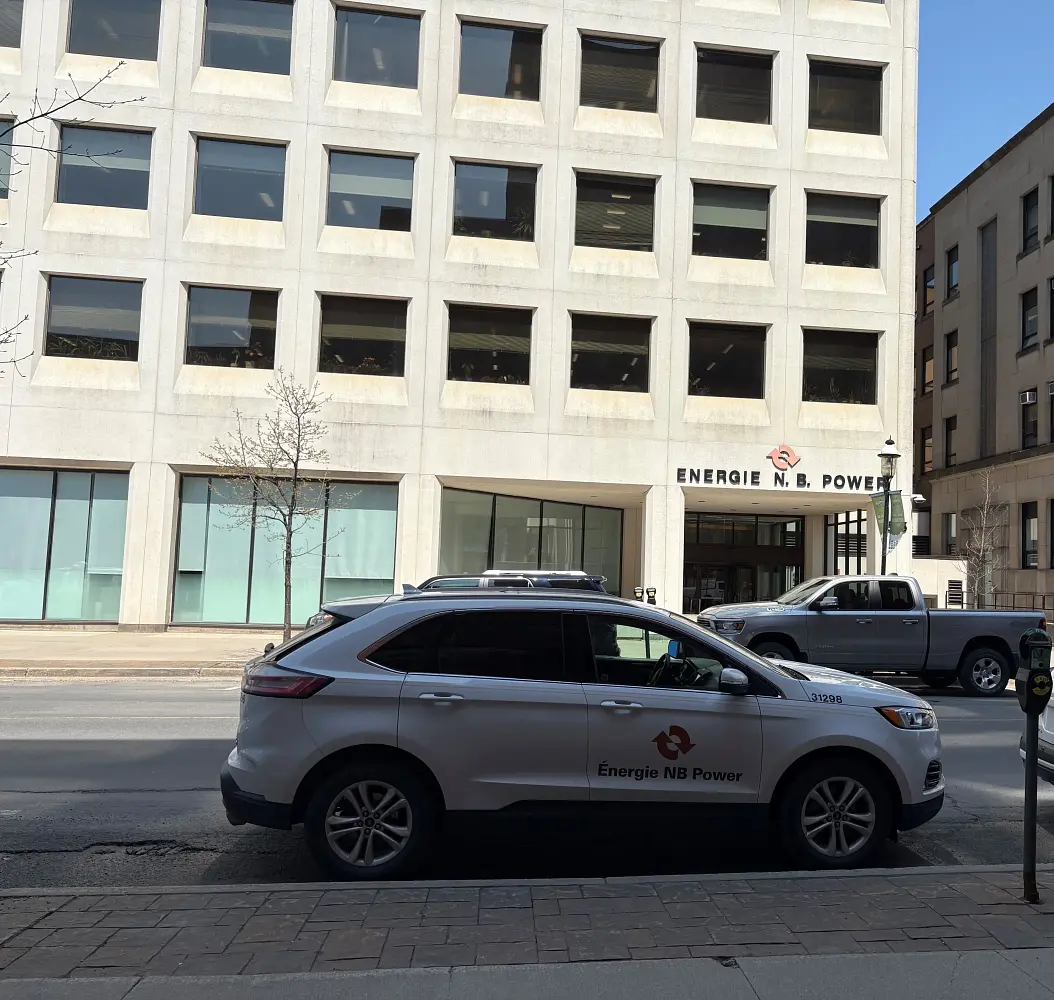
Auditor General’s report shows progress on the implementation of performance report recommendations
FREDERICTON (GNB) - In his report tabled today at the legislative assembly, Auditor General Paul Martin discussed the implementation rates of recommendations pertaining to prior years’ performance reports.
“This report is a tool for the Public Accounts Committee and the public to hold government accountable for acting on our recommendations,” said Martin.
This year’s report includes follow up on performance report recommendations from 2021 to 2023.
Martin was “pleased to see that departments have implemented 100 percent of the 2021 recommendations and 83 percent of the 2022 recommendations.”
However, only 32 percent of the 2023 recommendations have been implemented and Martin said, “As many of the outstanding recommendations relate to emergency response preparation, we will continue to follow up to ensure our recommendations are adopted”.

Auditor General reports on highway safety in New Brunswick
FREDERICTON (GNB)- Auditor General Paul Martin released a report today on highway safety in New Brunswick, noting improvements required in the Department of Transportation and Infrastructure’s systems and practices for ensuring the safe movement of people and goods.
The audit found that nearly half of department-operated highways are in poor or very poor condition, and that New Brunswick is reported to have the highest per capita highway fatality rate amongst Canadian provinces.
Martin’s audit found that the department lacks a formalized highway safety strategy and does not consistently address safety concerns in a timely manner. “Of concern, is a noted lack of oversight of public-private partnership (P3) highways, including inconsistent monitoring of contract compliance,” said Martin.
The department lacks target repair times for maintenance on highways it manages, and Martin noted “ There is inadequate documented rationale for changes to asphalt and chipseal projects selected for the departments capital plan”.
The Auditor General made 24 recommendations to the Department of Transportation and Infrastructure, all of which were accepted by the department.

Auditor General reports lack of progress on implementation of Weaving Our Voices Together plan
FREDERICTON (GNB)- Auditor General Paul Martin released a report today on the Department of Women’s Equality’s implementation of Weaving Our Voices Together, New Brunswick’s plan in response to the National Inquiry into Missing and Murdered Indigenous Women and Girls.
Martin’s office received conflicting information related to the number of completed actions and concluded that no more than 10 percent of the plan’s 39 actions were reported as completed at the time of the audit.
Martin underscored a significant concern regarding the implementation of the Weaving Our Voices Together plan, specifically highlighting the absence of sufficient governance and oversight mechanisms.
During the audit, Martin discovered that the committees originally established to guide the plan’s implementation have not convened since its launch in 2023, and Women’s Equality was not adequately monitoring the status of plan initiatives.
Martin had a strong message for government and said, “It is time for New Brunswick to move beyond commitments and demonstrate tangible progress that honours the intent of the plan and the lives it seeks to protect.”
The Auditor General made 11 recommendations to the Department of Women’s Equality, all of which were accepted by the department.

Auditor General reports on excessive emergency room wait times
FREDERICTON (GNB)- Auditor General Paul Martin released a report today on emergency health services in New Brunswick, highlighting significant gaps in the Department of Health’s oversight and reporting mechanisms for timely access to emergency room care.
Martin’s audit found that emergency room wait times consistently exceeded established targets, and that contributing factors were insufficient treatment spaces and a budget that is not based on current need. Martin recommended the department develop a comprehensive strategy to address excessive wait times.
“Our audit found that the Department of Health does not have effective mechanisms in place to ensure timely access to emergency health services,” said Martin. The report also noted there is an opportunity for the department to review emergency room data, to address the risks contributing to untimely service delivery.
The Auditor General made 11 recommendations to the Department of Health, and the department has committed to implementing these recommendations.

Auditor General issues clean audit report
FREDERICTON (GNB) – Auditor General Paul Martin tabled a report today in the legislative assembly on his office’s financial statement audit of the provincial government for the 2024-25 fiscal year and other key findings.
While his office issued an unqualified audit opinion, Martin did report on the Province’s $104 million deficit and said, “This is the first recorded deficit in eight years, while net debt increased marginally.”
Martin said this year’s deficit was driven by a $1.1 billion dollar increase in spending, primarily in the Departments of Health and Social Development. His report also noted the Province recorded $156 million in revenue related to the tobacco settlement, arising from litigation against tobacco companies for healthcare-related costs.
The report includes chapters on the Province’s financial condition and findings from financial audits of the government and its Crown agencies.
“I am pleased to report we issued an unqualified, or clean, audit opinion on the Province’s financial statements,” said Martin.

Auditor general reports on NB Power early retirement program
FREDERICTON (GNB) - Auditor General Paul Martin tabled a report in the legislative assembly today that includes a review on the design, implementation and outcomes of NB Power’s 2022 early retirement program.
Martin’s report noted a lack of demonstrated value for money, inadequate governance and oversight, and discrepancies in the application of program rules.
The review found program documentation overstated savings with a lack of adequate information provided to the board as part of decision making.
Martin said some employees who accepted the early retirement package were then brought back on contract to NB Power and “plan of establishment” numbers have not decreased as intended.
“Our work revealed significant gaps in the design and implementation of NB Power’s early retirement program,” said Martin. “It is crucial that NB Power addresses these issues to ensure that financial decisions are based on sound analysis and thorough oversight.”
The auditor general provided 5 recommendations to NB Power. The report is available online.

Auditor general reports on maintenance of public housing units
FREDERICTON (GNB) – Auditor general Paul Martin tabled a report in the legislative assembly today that includes an audit of the maintenance of public housing units by the New Brunswick Housing Corporation.
Martin concluded the corporation does not have systems and practices in place to ensure its 4,630 housing units are well maintained, safe and habitable for tenants.
Required inspections and identified repairs are not being completed in a timely manner, contributing to delays in filling vacant units, according to Martin’s report. Despite the corporation’s 30-day turnaround policy, it took an average of 140 days to fill vacant units.
Martin said the corporation had not established a budget allocation for 2024-25, making it impossible to monitor spending and to make resource allocation decisions.
“The audit found significant areas for improvement in processes and oversight to ensure safe and habitable housing for those most in need,” said Martin.
The auditor general provided 16 recommendations to the New Brunswick Housing Corporation. The report is available online.

Auditor general reports on legal aid service delivery
FREDERICTON (GNB) – Auditor general Paul Martin tabled a report in the legislative assembly today that includes an audit of the New Brunswick Legal Aid Services Commission, examining the efficiency and effectiveness of legal aid service delivery in the province.
Martin concluded that legal aid applications are processed in a timely manner, and that financial eligibility criteria are consistently applied. However, the financial grid used to determine eligibility for services has not been updated since 2017, creating a risk that the commission may not be serving those in need, as required by its mandate.
The audit found there was no formalized appeals process, and people who did appeal were not treated consistently. Martin also noted the commission has not adequately analyzed whether the use of staff or private counsel is more cost-effective.
“The audit found that while the New Brunswick Legal Aid Services Commission is doing a commendable job in many areas, there are opportunities for improvement,” said Martin.
The auditor general provided six recommendations to the commission. The report is available online.

Release of auditor general’s report
June 9, 2025
FREDERICTON: Tuesday, June 10 – 10 a.m.
EDITOR’S NOTE: Auditor general Paul Martin will release Volume I of his 2025 report at 10 a.m. on Tuesday, June 10, followed by a news conference at about noon in the committee room of the legislative assembly, 706 Queen St., Fredericton.

Volume I of the 2025 auditor general’s report to be released
FREDERICTON (GNB) – Volume I of the 2025 report of the auditor general will be released at 10 a.m. on Tuesday, June 10.
At that time, copies of the report will be available online at the Auditor General of New Brunswick website.
Volume I contains:
· Chapter 1 – Auditor General’s Comments
· Chapter 2 – Maintenance of Public Housing Units – The New Brunswick Housing Corporation
· Chapter 3 – NB Power’s Early Retirement Program – NB Power
· Chapter 4 – Legal Aid Service Delivery – The Legal Aid Service Commission
In addition to the report, a slide presentation, news releases and chapter highlights will be on the auditor general’s website.
Stock images of auditor general Paul Martin can be found on the website's photo gallery.
Note to news media:
Embargoed copies of materials will be available to media press gallery members at 9 a.m. on Tuesday, June 10. Those wishing to receive these materials should contact Rebecca Grandy by email at [email protected] by noon on Thursday, June 5.

Auditor general releases audit on access to addiction and mental health services
FREDERICTON (GNB) – Auditor General Paul Martin tabled a report in the legislative assembly today that includes an audit of the Department of Health’s responsibility to ensure timely access to addiction and mental health services.
“There are numerous improvements required pertaining to the development of key performance indicators, monitoring and reporting on access wait times, and an updated budgeting mechanism,” said Martin.
Martin concluded that the department lacks mechanisms to ensure timely access to addiction and mental health services; that performance measures, particularly those indicating wait times between referral and assessment, are inadequate; and that wait times for treatment often exceed the department’s established performance measures.
The Mental Health Services Advisory Committee, enacted by legislation, has not met since 2018.
The audit found that the budget for addiction and mental health services is not based on current needs assessments and the department does not monitor how the budget is used within the regional health authorities.
“The findings underscore the need for the Department of Health to implement effective measures to ensure timely access to addiction and mental health services in New Brunswick,” said Martin. “Addressing these recommendations will be crucial to ensuring that New Brunswickers receive the timely and adequate mental health support they need.”
The auditor general provided eight recommendations to the Department of Health. The report is available online.

Auditor general identifies issues with child death reviews
FREDERICTON (GNB) – Auditor General Paul Martin tabled a report in the legislative assembly today that included an audit on the child death investigation, inquest and review process.
The Department Justice and Public Safety is responsible for overseeing the process, and, according to Martin, recent public reporting by the Child Death Review Committee has been limited.
“The loss of a child is a profound tragedy and impacts families and communities,” said Martin. “In the wake of such an event, it is crucial that every aspect of the investigation, inquest and subsequent Child Death Review Committee review is conducted with the utmost diligence and integrity.”
The audit highlighted risk areas, including a lack of legislative compliance.
Key specific findings concluded that investigations, inquests and reviews are not always completed in in a timely manner and, according to Martin’s report, “of great concern is that Child Death Review Committee recommendations made to mitigate future risks of child deaths are not being shared with relevant departments, organizations or agencies.”
The auditor general made 28 recommendations to the Department of Justice and Public Safety. The report is available online.

Auditor general reports continued fiscal progress for province, issues clean audit opinion
FREDERICTON (GNB) – Auditor General Paul Martin tabled a report today in the legislative assembly on his office’s financial statement audit of the provincial government for the 2023-24 fiscal year and other key findings.
“The past several years, we have seen the province’s financial condition continue to improve,” said Martin.
The province’s surplus of $501 million represents the seventh consecutive surplus, and net debt is at its lowest point since 2015 at $11.8 billion. Martin said this year’s surplus, while down from last year, was partly driven by personal income tax, corporate income tax and harmonized sales tax revenues. However, provincial tax revenues have decreased by $133 million dollars from the previous year.
The report includes chapters on the province’s financial condition and findings from financial audits of the government and its Crown agencies.
“I am pleased to report we issued unqualified, or clean, audit opinion on the province’s financial statements,” said Martin.
All chapters on the financial audit can be found in Volume III of the 2024 auditor general’s report, which is available online.

Auditor general concludes hotel accommodations policy changes lacked adequate financial analysis
FREDERICTON (GNB) – Auditor General Paul Martin tabled a report in the legislative assembly today that includes an audit of the government’s hotel accommodations policy.
Martin concluded there was no documented business case to support the decision to discontinue participation in the federal government’s accommodations directory program, which, he said, could have saved the provincial government more than $632,000 per year.
The policy change was not approved by the Treasury Board, and the current policy could be misleading for employees by directing them to continue using government hotel rates, for which they may no longer be eligible.
The audit, covering the period from Jan. 1, 2023, to June 30, 2024, brought to light hotel expenses as high as $997 per night for one employee to stay in Barcelona.
“The audit concluded that the Department of Finance and Treasury Board’s updated hotel accommodations policy for employee hotel expenses does not reflect prudent fiscal management, nor was due consideration taken prior to the change,” said Martin.
The auditor general provided three recommendations to the Department of Finance and Treasury Board. The report is available online.

Auditor general’s report finds 73 per cent implementation rate of recent recommendations
FREDERICTON (GNB) – In his report tabled today at the legislative assembly, Auditor General Paul Martin examined the implementation rates of recommendations made from 2020 to 2022.
“Providing followup on prior years’ audit recommendations provides an important tool to enable the public accounts committee and New Brunswickers to hold departments accountable,” said Martin.
The auditor general found only 57 per cent of the recommendations from 2020 had been implemented; the Department of Natural Resources and Energy Development implemented 100 per cent of the recommendations pertaining to timber royalties, however NB Power implemented neither of two recommendations pertaining to its debt challenges.
Martin said he was extremely pleased to see that departments implemented all of the 2021 audit recommendations.
Government departments and agencies implemented 71 per cent of his audit recommendations made in 2022.
“Ongoing followup will continue to ensure recommendations are being adopted,” said Martin.
The followup audit report is available online.

Volumes II and III of the 2024 auditor general’s report to be released
FREDERICTON (GNB) – Volumes II and III of the 2024 report of the auditor general will be released at 10 a.m. on Tuesday, Dec. 10.
At that time, copies of both reports will be available online at the Auditor General of New Brunswick website.
Volume II contains:
· Chapter 1 – Auditor General’s Comments
· Chapter 2 – The Child Death Investigation, Inquest and Review Process
· Chapter 3 – Access to Addiction and Mental Health Services
· Chapter 4 – Hotel Accommodations Policy
· Chapter 5 – Status Report on Implementation of Performance Audit Recommendations
Volume III contains:
· Chapter 1 – Auditor General’s Comments
· Chapter 2 – Annual Surplus, Net Debt and Funded Debt
· Chapter 3 – State of New Brunswick’s Financial Condition
· Chapter 4 – Results – Audit of the Province of New Brunswick’s Financial Statements
· Chapter 5 – Results of Crown Agency Financial Statement Audits
In addition to the reports, slide presentations, news releases and chapter highlights will be available on the auditor general’s website.
Stock images of auditor general Paul Martin can be found on the website’s photo gallery.
Note to news media:
Embargoed copies of all materials will be available to media press gallery members at 8:30 a.m. on Tuesday, Dec. 10.
Those wishing to receive these materials should contact Jane Matthews-Clark by email at [email protected] by noon on Friday, Dec. 6.

Auditor general reports travel nurse contracts posed undue risk to province
FREDERICTON (GNB) – Auditor General Paul Martin tabled a report today in the legislative assembly, highlighting concerns related to travel nurse contracts within the Department of Social Development, Horizon Health Network and Vitalité Health Network.
Between Jan. 1, 2022, and Feb. 29, 2024, the government spent over $173 million on travel nurses.
“Our audit confirmed that the contracts with private nursing agencies were not reflective of best practices and did not demonstrate value for money,” said Martin.
The issues noted in the audit included a lack of data-driven decision-making, no vendor-selection processes, and no proper contract development, management or oversight.
Martin said Vitalité Health Network did not provide his office with requested information, contravening the Auditor General Act.
“It is critical that government organizations understand the authority of the auditor general’s office and comply with the Auditor General Act,” said Martin.
At the time of the audit, Vitalité had spent over $123 million on the use of contracted health-care workers, with over $93 million going to Canadian Health Labs.
Martin said the pricing structure varied greatly between service providers, however Canadian Health Labs charged significantly more than the others to provide registered nurses, licensed practical nurses and personal support workers.
“While Vitalité cited the requirement for the provision of French-language services as the reason for the large contracts with Canadian Health Labs, we found that the contract only required limited French-language services in some hospitals,” said Martin.
The auditor general noted that Social Development and Horizon focused on the short-term use of travel nurses. This resulted in total spending of almost $48 million for Horizon. While guidelines were in place for vendor selection, there were no selection criteria or scoring matrixes to support the awarding of contracts.
Martin credited Horizon for its processes to ensure services paid for had been received, but noted inadequate support for payment of travel expenses.
He said the largest contract signed by Social Development was written by the contractor and lacked adequate legal review, resulting in undue risk to the province.
“We have serious concerns pertaining to the lack of oversight for invoices paid by the Department of Social Development,” said Martin.
The auditor general made a total of 34 recommendations to the Department of Social Development, Horizon Health Network and Vitalité Health Network. The report is available online.

Auditor general finds mechanisms are not in place to allow for use of Mental Health Trust Fund
FREDERICTON (GNB) – Auditor General Paul Martin tabled a report today in the legislative assembly that includes an audit of the Mental Health Trust Fund.
The audit found that, while the Department of Finance and Treasury Board has effectively fulfilled its obligations pertaining to the trust, the Department of Health has not.
“We found the Department of Health did not have the mechanisms in place to allow for timely use of the trust, as intended,” said Martin.
The trust fund was established in 1977 from a bequest made to the Province of New Brunswick and designated for specific treatment of deserving New Brunswickers.
The Department of Health is to draw funds for treatment, with the responsibility to determine which cases are most deserving based on an individual’s mental health condition and financial resources. The Department of Finance and Treasury Board is responsible for administration of the trust. As of March 31, 2023, the trust’s value was $1,635,256.
The audit found that Department of Health officials had little knowledge of the trust and its history. Martin concluded that the department has not made sufficient effort to give effect to the terms of the Mental Health Trust Fund and fulfil the donor’s wishes.
The auditor general made one recommendation to the Department of Health. The report is available online.

Auditor general finds improvements required with housing strategy
FREDERICTON (GNB) – Auditor General Paul Martin tabled a report today in the legislative assembly that includes an audit of NB Housing Strategy: Housing for All.
The audit found that, while the New Brunswick Housing Corporation established targets and measurable actions within the housing strategy, there are improvements to be made regarding linkages, transparency, and monitoring and reporting on progress.
“The targets are well presented, easy to understand and measurable. However, the strategy does not document what actions are linked to specific targets,” said Martin. “This means that New Brunswickers will not know which actions are driving success.”
The strategy was released on June 29, 2023, and documents a vision, guiding principles, goals, targets and actions for the first three years of the 10-year plan. The strategy highlights 22 actions intended to support and enable the achievement of four targets. While the strategy states it has identified $500 million over three years in new and previously committed funding, Martin noted many actions were missing information on costing.
The audit found public performance reporting mechanisms have not been established and there has been no public reporting on the achievement of the four targets.
The auditor general made a total of seven recommendations to the New Brunswick Housing Corporation. The report is available online.

Auditor general finds lack of departmental oversight for pupil transportation
FREDERICTON (GNB) – Auditor General Paul Martin tabled a report today in the legislative assembly that includes an audit of pupil transportation.
The Department of Education and Early Childhood Development establishes policies and guidelines for pupil transportation, and Martin concluded the department lacks oversight to ensure compliance with key requirements.
The audit found several instances of non-compliance with legislation and policy.
“Of utmost concern to us, is that despite our office’s extensive audit of pupil transportation in 2001, several gaps in levels of compliance remain,” said Martin. “We see little improvement in the area of departmental monitoring and oversight.”
These gaps include drivers not meeting appropriate licensing and training requirements and the department failing to ensure compliance with vehicle maintenance schedules.
Martin said the key areas of concern related to insufficient evidence of required licensing for bus drivers, criminal record checks, driver training and bus maintenance. The audit noted 63 buses with overdue motor vehicle inspections.
The audit also found that few strategies were in place to recruit and retain bus drivers.
The auditor general made a total of 12 recommendations to the Department of Education and Early Childhood Development. The report is available online.

Volume I of the 2024 auditor general’s report to be released
FREDERICTON (GNB) – Volume I of the 2024 report of the auditor general will be released at 9 a.m. on Tuesday, June 4.
At that time, copies of the report will be available online at the Auditor General of New Brunswick website.
Volume I contains:
• Chapter 1 – Auditor General’s Comments
• Chapter 2 – Travel Nurse Contracts – Department of Social Development, Horizon Health Network, Vitalité Health Network
• Chapter 3 – Pupil Transportation – Department of Education and Early Childhood Development
• Chapter 4 – NB Housing Strategy: Housing for All – New Brunswick Housing Corporation
• Chapter 5 – Mental Health Trust Fund No. 9 – Departments of Health and Finance and Treasury Board
In addition to the report, a slide presentation, news releases and chapter highlights will be on the auditor general’s website.
Stock images of auditor general Paul Martin can be found on the website’s photo gallery.
Note to news media:
Embargoed copies of materials will be available to media press gallery members at 8 a.m. on Tuesday, June 4. Those wishing to receive these materials should contact Jane Matthews-Clark by email at [email protected] by noon on Friday, May 31.

Auditor general proceeds with audit of travel nursing contracts
FREDERICTON (GNB) – Auditor general Paul Martin has announced that his office is undertaking an independent audit of the management of contracts pertaining to travel nurses.
Those being audited include Vitalité and Horizon health networks, the Department of Health and the Department of Social Development.
The audit will consider issues related to procurement, oversight, internal controls and overall value for money.
Martin said, as with all performance audits within the Office of the Auditor General, the work will be conducted in accordance with established Canadian auditing standards. The work may include interviews with organization officials, review of documentation, and various forms of data collection and analysis.
“This work is very important in keeping government departments and agencies accountable for the spending of New Brunswick tax dollars,” said Martin. “I look forward to reporting on our findings and recommendations upon completion of our audit.”

Auditor general finds province had adequate procedures with enforcing border restrictions
FREDERICTON (GNB) – As part of his work on the government’s response to the COVID-19 pandemic, auditor general Paul Martin issued a report on the enforcement of border restrictions by the Department of Justice and Public Safety.
Martin noted that 3.1 million vehicles passed through New Brunswick border control points and that the department had adequate procedures in place to enforce border restrictions.
“The department had clearly established roles and responsibilities, implemented callback and enforcement programs and had a traffic safety mitigation plan,” said Martin in his report. However, there was still noted frustration and often long lineups at border control points.
The audit noted that the online travel registration program improved the level of data available to support contacting travellers required to self-isolate.
“The department should evaluate the efficacy of the hotel isolation program, as it cost government over $5.4 million with only nine travellers having tested positive for COVID-19,” said Martin.
The audit found that while the New Brunswick Emergency Measures Organization worked with municipalities to ensure there were up-to-date business continuity plans, only 38 per cent of government departments had up-to-date business continuity plans when the pandemic began.
The auditor general made six recommendations to the Department of Justice and Public Safety. The report is available online.

Auditor general finds Department of Health and regional health authorities went above and beyond to support New Brunswickers during the pandemic
FREDERICTON (GNB) – Auditor general Paul Martin tabled a report today in the legislative assembly, highlighting the work of the Department of Health and the regional health authorities’ pandemic response. Martin praised staff for going above and beyond to support New Brunswickers during the pandemic.
The Department of Health was designated as the lead for pandemic health response purposes during the COVID-19 pandemic.
The audit covered key operational areas that were meant to reduce the spread of COVID-19 including testing, contact tracing, contact management, and infection prevention and control guidance.
Martin concluded in his report that “the department had numerous systems and procedures in place that were designed to reduce the spread of COVID-19, however we noted areas for improvement should the need arise in the future.”
The auditor general noted that, while the department had established performance metrics such as testing turnaround times, outcomes were not monitored or reported upon.
The demand for test kits was high, with over 17 million tests distributed as of January 2023. However, the lack of inventory-monitoring systems contributed to the department being unable to ensure supplies were provided where needed most.
More than 300 compassionate travel exemption requests were sent to the chief medical officer of health. Martin noted a lack of established criteria to ensure consistent application and transparency of decision-making and reported that “36 per cent of exemption requests tested by our office did not have documented rationale for the decision.”
The report identified issues with the retention of evidence to substantiate public health recommendations throughout the pandemic. From the requested sample, the department was unable to provide evidence-based documentation to substantiate the decisions, acknowledging that it did not create a library or record of sources consulted for evidence-based decision-making.
The auditor general made seven recommendations to address these outstanding issues in his report, which is available online.

Auditor general concludes education department protected students’ health and safety while continuing to provide public education
FREDERICTON (GNB) – Tabling his latest report today at the legislative assembly, auditor general Paul Martin discussed his audit of the Department of Education and Early Childhood Development’s pandemic response.
Overall, the audit found that the department took actions to address deficiencies and supported districts with the provision of central services throughout the pandemic.
“Based on our audit work, we were able to determine the Return to School Plan was consistent with the direction of government and the advice and recommendations of Public Health and Public Safety,” said Martin.
However, the audit also found opportunities for improvement, in the areas of planning, training and communication, to better prepare the education system should future disruptions to business continuity occur.
The audit found that the department did not ensure that emergency management training was provided to staff, and it did not have plans to undertake an after-action review of the pandemic response.
The auditor general made a total of five recommendations to the Department of Education and Early Childhood Development. The report is available online.

Auditor general finds no business case to support differences in government workers’ compensation payment models
FREDERICTON (GNB) – Auditor general Paul Martin tabled a report in the legislative assembly today, including an audit on injured workers’ compensation payment mechanisms within the government.
The audit reported that the Department of Finance and Treasury Board has established different compensation models for various employee groups, with no documented business case for having done so.
“We could find no documented evidence that the department had analyzed the different payment models in terms of benefits to employees, costs to government or outcomes,” said Martin.
Injured workers within the health-care sector are compensated as per the Workers’ Compensation Act, at 85 per cent of net loss of earnings. Government pension and vacation benefits do not accrue, and payments are subject to maximum insurable earnings.
The department has established a policy, and clauses within various collective bargaining agreements, to provide injured workers within government departments and school districts with 100 per cent salary continuance, including pension and vacation benefits.
Martin pointed out that the salary continuance model provides benefits of just over an additional $1,000 per worker per year when compared to the 85 per cent of net-loss-of-pay methodology. However, additional costs to the government for salary continuance are over $1.8 million per year. These additional costs, according to the auditor general’s report, are, in part, due to personal income taxes, Canada Pension Plan and Employment Insurance.
The audit concluded that regional health authority employees are compensated at lower levels than government department and school district employees. Although compensation structures appear to align with legislation, policy and collective bargaining agreements, there is no documented business case to support treating employees differently.
The auditor general made one recommendation to the Department of Finance and Treasury Board. The report is available online.

Auditor general followup on prior years’ recommendations shows only 60 per cent implementation rate
FREDERICTON (GNB) – In his report released today, auditor general Paul Martin provided an update on the status of the implementation of past recommendations at departments, agencies, and Crown corporations.
The report shows that entities have implemented only 60 per cent of recommendations. The auditor general finds this low implementation rate concerning.
“I am disappointed with the low rate of implementation of our past recommendations by some departments. We encourage departments, commissions, and Crown agencies to implement our recommendations in a timely manner.” said Martin.
Martin said this report is an important tool as it provides the province’s Public Accounts Committee and the public with information to hold government departments and Crown agencies accountable. The report includes status updates on recommendations from chapters in the 2016 to 2020 reports, with both self-reported and verified results for select chapters.
For the 2018 recommendations made to the Department of Education and Early Childhood Development regarding improving student performance, the auditor general found that only 50 per cent of recommendations were implemented.
Of note, a recommendation to maintain the current 10-year provincial education plans until 2026, which would allow the education system to stabilize and allow evaluation of progress, was considered implemented at the time of the followup work.
“However, given the remaining timeline to 2026, it is not possible to determine if it will remain implemented,” said Martin.
Followup work for the 2018 chapter on Addiction and Mental Health Services in Provincial Correctional Facilities found that 72 per cent of recommendations were implemented, with work remaining in the area of transferring elements of responsibility from the Department of Justice and Public Safety to the Department of Health, and that responsibility for mental health services remains unclear.
In following up on recommendations from the 2018 reports on WorkSafe NB, the auditor general found that 80 per cent of recommendations made for the governance audit were implemented, while only 69 per cent of the recommendations from the work on Management of Injured Workers’ Claims have been implemented. For 2016 recommendations made to Public Trustee Services within the New Brunswick Legal Aid Services Commission, 70 per cent of recommendations have been implemented.
The followup chapter is available online in Volume II of the auditor general’s 2022 report.

Auditor general reports significant fiscal progress, while cautioning that important work remains
FREDERICTON (GNB) – Auditor general Paul Martin reported on his office’s fiscal 2022 financial statement audit of the province and other key findings. Overall, New Brunswick’s financial condition continues to improve.
“The province’s financial condition has significantly improved from 2021. This improvement in 2022 is mostly due to the large surplus from increased tax revenues, and a decrease in net debt,” said Martin.
With the province’s $777 million surplus in 2022, net debt is down $1.1 billion from last year. The province’s net debt now stands at $12.4 billion which is made up of $9.1 billion in tangible capital assets (such as roads, schools, and hospitals) and $3 billion in accumulated past deficits for which future revenues still must fund.
A note of caution was provided too, as funded debt (the amount the province owes its creditors) remains at a historic high of $18.4 billion, with $4.6 billion of repayments required over the next four years.
“Important fiscal work still remains in funding deficits of past years, as well as reducing amounts owed to the province’s creditors,” said Martin.
The report released today includes chapters on the province’s financial condition and significant findings from financial audits of the province and its Crown agencies.
The report also includes the auditor general’s concerns relating to NB Power’s ability to self sustain operations, comments on the province’s implementation of a new enterprise resource planning system, Service New Brunswick’s property assessment processes where there are still 61,000 properties with unvalidated data from the 2017 FastTrack initiative, and a discussion on accounting errors across departments and Crown agencies.
All chapters on the financial audit can be found in Volume III of the 2022 auditor general report, available online.

Auditor general finds province does not ensure timely remediation of contaminated sites, increasing risk to the public and the environment
FREDERICTON (GNB) – In his latest report tabled today at the legislative assembly, auditor general Paul Martin highlighted issues in the provincial government’s contaminated sites management process relating to its legislative authority, execution, performance monitoring and reporting.
The audit found that the Department of Environment and Local Government does not effectively administer the contaminated sites management process, even though contaminated sites can present a significant risk to human health and the environment.
“The department has a backlog of over 1,000 contaminated site files spanning 35 years, and 75 per cent of open files have remained so for 10 years or longer,” said Martin.
Martin said a significant finding in the report is that the remediation program is not referenced in legislation or regulation.
“This has contributed to the department’s inability to ensure timely remediation of contaminated sites,” said Martin. “This risks leaving New Brunswickers susceptible to adverse impacts.”
The audit also found that the department is not proactive when dealing with external parties and that the current process does not require a specific timeline for remediation or proactive followup.
“With no established timelines or followup, it is not possible for the department to hold stakeholders accountable for timely site remediation,” said Martin.
The report also stated that the province has no program to address orphan sites, and that the government has not designated a single entity to co-ordinate remediation of government-owned contaminated sites.
“Both of these issues have potential negative impacts on future liability and cost to remediate,” said Martin.
As of March 31, 2022, a liability for contaminated sites of $50.8 million was recorded in the province’s public accounts.
The auditor general makes 17 recommendations: two to the Executive Council Office and the remainder to the Department of the Environment and Local Government.
Full details are available online.

Almost $41 million surplus in Environmental Trust Fund while eligible projects are denied or awarded reduced funding: auditor general
FREDERICTON (GNB) – In his latest report tabled today in the legislative assembly, auditor general Paul Martin highlighted a lack of planning and direction with respect to the province’s Environmental Trust Fund under the responsibility of the Department of Environment and Local Government.
The audit found the department has no standardized approach to evaluating project funding requests and efforts to make evidence-based decisions continue to fall short.
“We were surprised to find projects being rejected or given less-than-requested funding while the fund has a surplus of almost $41 million,” said Martin.
The report stated that the accumulated surplus grew by more than $20 million in less than 10 years, as revenue continuously outpaced expenditures. Furthermore, Martin said the department has no clear plan for the surplus.
“The department needs to develop a transparent plan outlining how and when it will use the accumulated surplus,” said Martin.
As one of the largest trust funds in the province, Martin said he expected to see a documented strategy with long-term goals and measurable outcomes, but instead found that this has never been completed.
The audit found that the department does not effectively oversee the fund to ensure it is delivering on its mandate. For instance, Martin said, the department has not evaluated the fund’s performance or outcomes since it was established in 1990.
“The department was unable to demonstrate how 30 years of funding has positively impacted the environment in New Brunswick,” said Martin.
The report also noted that the provincial government has not provided clear strategic direction for the department regarding its oversight responsibilities for the fund.
The auditor general made nine recommendations to the Department of Environment and Local Government to address the issues with oversight authority and responsibility, planning, performance measurement and reporting of the Environmental Trust Fund.

Auditor general finds province pays millions to finance employee health and dental benefit plan deficits
FREDERICTON (GNB) – In his report tabled today at the legislative assembly, auditor general Paul Martin highlighted issues with the health and dental benefit plan that serves over 30,000 eligible employees in the government and various entities.
The report found, in 2017, the provincial government made a lump-sum payment of $8.8 million to finance the deficit at June 2016. The health component of the plan has been in a deficit position since 2016, with a cumulative deficit total of $6.9 million recorded in June 2021.
“The concern with outstanding deficits is that there is accumulated interest that increases fees on the debt, without a strategy to cover costs within the plan itself,” said Martin. “The interest then becomes additional cost that could have been avoided by settling the deficit in full, or by developing an effective strategy to stabilize costs.”
Martin said the audit uncovered a complex operating structure combined with poor documentation of roles and responsibilities.
“There is cause for concern in terms of accountability as, over time, the structure has become more complex with multiple parties involved in the management and administration of the plan, but these changes have not been properly documented. It becomes challenging to know who is accountable for what within the structure,” said Martin.
The report noted that the claims administrator has been repeatedly awarded the contract since the 1960s. In addition, Finance and Treasury Board has not evaluated the structure of the provider arrangement in over 30 years.
The report also found that the Department of Finance and Treasury Board has not evaluated the plan administration costs paid to Vestcor to ensure these costs are in line with industry standards and provide best value for money to the plan. Further, the report notes that the contract with Vestcor is drafted in a way that makes it difficult to identify which of Vestcor’s activities and associated costs apply specifically to the health and dental benefit plan, as opposed to the other benefit plans for which Vestcor provides administration services to the province.
The report noted that the Department of Finance and Treasury Board has not developed a process to manage risks, and highlighted the issue of weak contract management, as third-party performance is seldom evaluated against targets.
The auditor general makes 14 recommendations in his report to address issues related to managing costs and risk of both plan members and taxpayers.
Full details are available online.

Auditor general finds unexplained decisions impacted NB Liquor profits and pricing
FREDERICTON (GNB) – Auditor general Paul Martin tabled a report today in the legislative assembly, highlighting concerns regarding the New Brunswick Liquor Corporation’s role in the development of the liquor industry in the province.
The report highlighted that NB Liquor did not meet its legislated requirement to participate in the development of the industry. Martin said issues in lack of planning and engagement were uncovered, including that NB Liquor did not adopt solutions to issues raised by local producers.
The audit found issues within NB Liquor’s product management and planning processes.
“Our work identified weaknesses and inconsistencies in the corporation’s key internal processes guiding the selection and pricing of products for sale,” said Martin. “Weaknesses identified in product management processes increase the risk of favouritism, poor decision-making and lack of transparency.”
The report also identified issues within NB Liquor’s pricing process, which impacted its profits.
“NB Liquor’s income is an important source of annual revenue for the province, with $1.7 billion contributed over 10 years. In several instances we found no records to support key financial decisions in product management and pricing,” said Martin.
The audit also found that NB Liquor suppliers can maximize product costs to NB Liquor, and that NB Liquor typically relied upon producers to set retail prices, which creates risk of decreased profit for NB Liquor.
In addition, the audit found that NB Liquor had created special arrangements with some producers in the province, resulting in lower NB Liquor profit margins. Special arrangements can also lead to claims of inequity among producers and represent a lack of transparency, said Martin.
The report also noted widespread issues in documentation and data retention at NB Liquor.
“Information provided by NB Liquor in response to our audit requests was often incomplete or did not adequately address the enquiry,” said Martin.
The report highlights NB Liquor’s poor recordkeeping as a challenge in holding NB Liquor accountable for its performance.
The auditor general made 19 recommendations to address these outstanding issues in his report, which is available online.

ALC governance concerns remain: Atlantic Canadian auditors general followup report
FREDERICTON (GNB) – It has been over five years since the auditors general of the Atlantic provinces made 25 recommendations directed to the Atlantic Lottery Corporation (ALC) and the four shareholder governments. In a followup report released today, the auditors general stated that the governments have still not implemented four important recommendations intended to improve ALC’s governance and overall effectiveness.
All 16 of the original 2016 recommendations directed to the ALC board and management have been fully implemented. However, the report stated that the four shareholder governments do not intend to implement two recommendations to improve governance at ALC, and they have not completed two others related to the Unanimous Shareholder Agreement and the ALC pension plan.
The shareholder governments have not completed the recommendation to periodically review the Unanimous Shareholder Agreement, increasing the risk that the agreement may not reflect the risks and objectives of the shareholder governments. It has been over a decade since the last completed review.
In the original report, ALC’s pension plan solvency was highlighted. The report stated that ALC is required to repay any shortfalls via deductions from each province’s profit distribution.
“ALC management told us the most recent pension solvency payment occurred in March 2020 and that between 2012 and the end of December 2021, deductions from the profit of the four Atlantic province shareholders exceeded $87 million,” stated the report, co-authored by the auditors general of New Brunswick, Newfoundland and Labrador, Nova Scotia, and Prince Edward Island.
The ALC shareholder governments have not completed the ongoing pension plan review and have not implemented the required changes.
“We continue to encourage the shareholder governments to complete implementation of plan amendments to address pension shortfalls and to ensure the financial sustainability of the pension plan,” said the auditors general in their report.
In this followup report, the auditors general reported the shareholder governments have implemented three additional recommendations since the first followup report in 2019, bringing the total shareholder recommendations implemented to five of nine (56 per cent).
According to the report, the shareholder governments do not intend to implement two recommendations related to the role of government officials and public servants on the ALC board. Failure to implement these recommendations risks impeding the board’s fiduciary duty to ALC and its overall effectiveness in providing sound governance, said the auditors general.
The auditors general reiterated the importance to the shareholder governments of implementing all recommendations to improve governance and business agility of ALC.
They noted that, although the recommendation to adopt board member term limits was adopted, it has not been applied to the ALC board chair, who has held a position on the board for over two decades.
The latest followup report is available on the auditor general’s website.